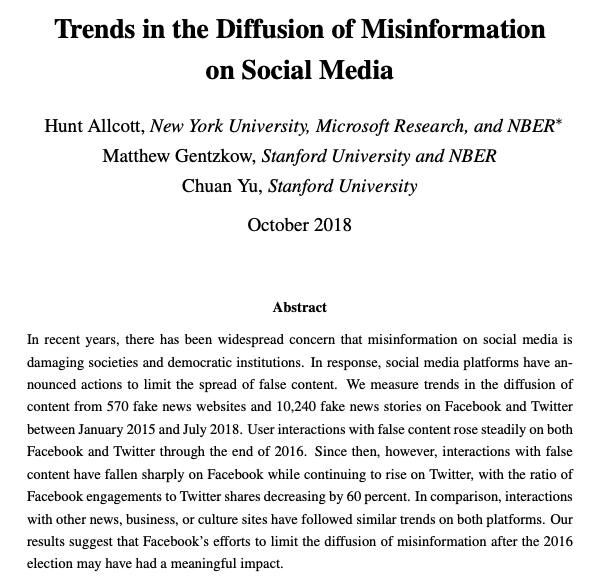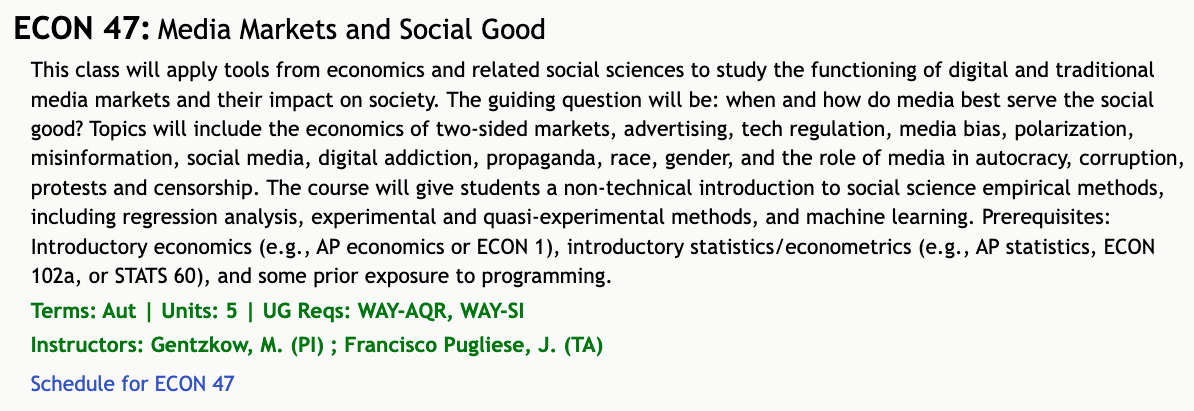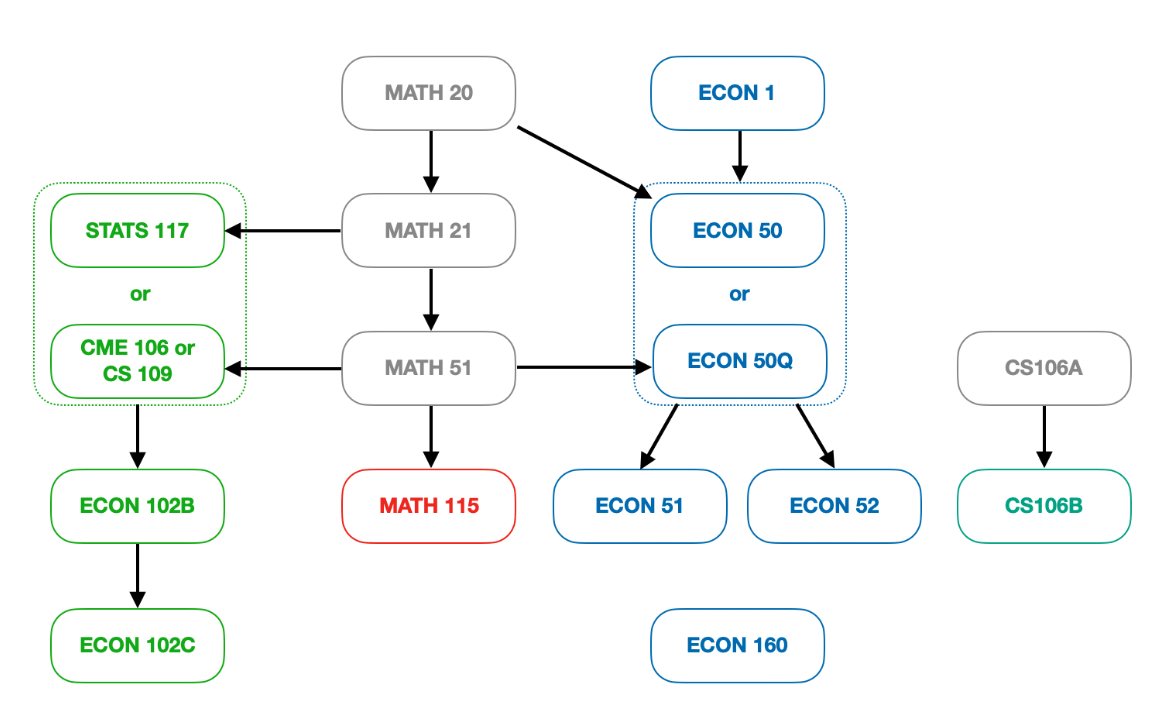Economics
...for engineers
Lecturer & Associate Director of Undergraduate Studies, Economics Department
This is an HTML slide deck. To navigate, press N to go forward, P to go back, or ESC to see a map of the deck.
Why econ?
You'll get a good-paying job.
You'll learn rigorous tools to analyze data.
Just like every other major at Stanford.
You can follow a career path with a significant and measurable social impact.
Relatively few units required; lots of people double major/minor
10.
9.
8.
7.
6.
5.
4.
3.
2.
1.
You'll learn how to analyze messy situations with elegant, testable models.
You'll have a wide range of career -- and career-switching -- options.
If you combine Econ and engineering, people will think you're Jedi.
One of the Stanford Econ department's specialties is mechanism design.
If you're entrepreneurial, you'll be faced with a lot of economic problems.
Sooner or later, even as an engineer, you'll have to deal with humans.
dealing with humans

Matt Gentzkow
Pioneered the economic study
of social networks
Winner, 2014 John Bates Clark Medal
Teaches Econ 47


mechanism design
MIcroeconomists
MAcroeconomists
People who are wrong about
specific things
People who are wrong about
things in general
mechanism design
Much of economics is about understanding how people respond to incentives, and in particular how they respond to prices in a market mechanism.
Mechanism design takes an engineering approach to economics, and asks:
How can we design mechanisms
that provide the incentives
to achieve a desired result?

Al Roth
Designed algorithms to support kidney exchanges
Won Nobel Prize in 2012

Paul Milgrom
Designed $19 billion
wireless spectrum auction
Won Nobel Prize in 2020
Teaches Econ 136
Some (very) notable Stanford Econ professors in this field:

Paul Milgrom
Designed $19 billion
wireless spectrum auction
Won Nobel Prize in 2020
Teaches Econ 136

career opportunities
Finance and Consulting
Entrepreneurship and Tech
Well-established internship programs, career paths, mentoring
Product managers, CEO's, venture capital






Dirty little secret #1: You can work at any of these firms with any Stanford major.
Policy and Research
Policy think tanks, government, nonprofit organizations, academia



Dirty little secret #2: What you do there might depend on your major. Know yourself!
two programs: ba and bs
plus: certificates!
Certificates
- 18 or more units, generally taken from upper-division courses
- Available to majors only
- Doesn't appear on transcript or diploma, but recognizes focused work in a career-oriented area of study
- Four certificates offered:
- Business Economics
- Data Science
- Environmental Economics
- Finance

B.A. Core Requirements
B.S. Core Requirements

(note: B.A. still qualifies as STEM)
CORE
(47 units)
FIELD
(25 units)
(5)
CAPSTONE
ELEC
(8)
10
20
30
40
50
60
70
80
90
100
110
120
Units
Philosophy, Linguistics
Electrical Engineering
International Relations
Mechanical Engineering
Management Science & Engineering
Computer Science (min.)
Sociology, American Studies, German
B.S.
CORE
(30 units)
FIELD
(25 units)
(5)
CAPSTONE
ELECTIVES
(20 units)
Opportunities to pursue your interests
B.A.
85

Econ Department Peer Advisors
Data Science Minors
Human Rights Minor
Italian Minor
Double major in math, co-term in CS
thank you and good luck!
Chris Makler
cmakler@stanford.edu
calendly.com/chrismakler
(please don't schedule 1:1 next week due to an upcoming midterm...)
thank you
and good luck
chris makler
cmakler@stanford.edu
Economics...for Engineers
By Chris Makler
Economics...for Engineers
Slide deck for ENGR1 talk
- 332



